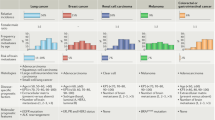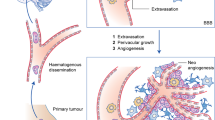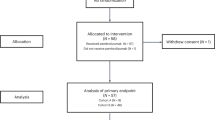Abstract
Cerebral metastases remain a common complication among patients with cancer. Historically, whole-brain radiotherapy has remained the standard of care, with surgery being reserved for selected cases. Recent advances have changed our practice, however. In particular, stereotactic radiosurgery has emerged as a vital treatment modality for this disease. In addition, chemotherapy, including temozolomide, topoisomerase inhibitors and antimetabolites, and treatment sensitizers, such as efaproxiral and motexafin gadolinium, are actively being assessed in clinical trials, and are likely to play an increasing role in the management of cerebral metastases in the future. Nonetheless, many uncertainties remain, such as the optimal combination and timing of therapeutics. As the arsenal of therapeutics expands, it will be increasingly important to select appropriate patients for a particular treatment paradigm. Understanding the efficacy and toxicity of treatment is essential to this task.
Key Points
-
The debate continues on the role of focal therapies in the management of cerebral metastases; in particular, the routine use of whole-brain radiotherapy is being questioned
-
Chemotherapy is emerging as a potential therapeutic strategy for cerebral metastases
-
Treatment sensitizers to enhance the response to therapies administered concomitantly are being carefully studied
-
Treatment of patients with cerebral metastases needs to be based on both clinical and tumor factors
-
Despite advances in our therapeutic arsenal against cerebral metastases, the impact on survival has been marginal, as most patients succumb to their systemic disease
-
Neurocognitive and quality-of-life endpoints must be incorporated into future studies of patients with cerebral metastases
This is a preview of subscription content, access via your institution
Access options
Subscribe to this journal
Receive 12 print issues and online access
$209.00 per year
only $17.42 per issue
Buy this article
- Purchase on Springer Link
- Instant access to full article PDF
Prices may be subject to local taxes which are calculated during checkout
Similar content being viewed by others
References
Barnholtz-Sloan JS et al. (2004) Incidence proportions of brain metastases in patients diagnosed (1973 to 2001) in the Metropolitan Detroit Cancer Surveillance System. J Clin Oncol 22: 2865–2872
Gaspar LE et al. (2000) Validation of the RTOG recursive partitioning analysis (RPA) classification for brain metastases. Int J Radiat Oncol Biol Phys 47: 1001–1006
Patchell RA et al. (1990) A randomized trial of surgery in the treatment of single metastases to the brain. N Engl J Med 322: 494–500
Vecht CJ et al. (1993) Treatment of single brain metastasis: radiotherapy alone or combined with neurosurgery? Ann Neurol 33: 583–590
Mintz AH et al. (1996) A randomized trial to assess the efficacy of surgery in addition to radiotherapy in patients with a single cerebral metastasis. Cancer 78: 1470–1476
Patchell RA et al. (1998) Postoperative radiotherapy in the treatment of single metastases to the brain: a randomized trial. JAMA 280: 1485–1489
Bezjak A et al. (2002) Symptom response after palliative radiotherapy for patients with brain metastases. Eur J Cancer 38: 487–496
Chow E et al. (2005) Prospective assessment of patient-rated symptoms following whole brain radiotherapy for brain metastases. J Pain Symptom Manage 30: 18–23
Meyers CA et al. (2004) Neurocognitive function and progression in patients with brain metastases treated with whole-brain radiation and motexafin gadolinium: results of a randomized phase III trial. J Clin Oncol 22: 157–165
Lutterbach J et al. (2003) Radiosurgery followed by planned observation in patients with one to three brain metastases. Neurosurgery 52: 1066–1073
Hasegawa T et al. (2003) Brain metastases treated with radiosurgery alone: an alternative to whole brain radiotherapy? Neurosurgery 52: 1318–1326
Chitapanarux I et al. (2003) Prospective study of stereotactic radiosurgery without whole brain radiotherapy in patients with four or less brain metastases: incidence of intracranial progression and salvage radiotherapy. J Neurooncol 61: 143–149
Varlotto JM et al. (2003) Analysis of tumor control and toxicity in patients who have survived at least one year after radiosurgery for brain metastases. Int J Radiat Oncol Biol Phys 57: 452–464
Brown PD et al. (2002) Stereotactic radiosurgery for patients with “radioresistant” brain metastases. Neurosurgery 51: 656–665
Schoggl A et al. (2000) Defining the role of stereotactic radiosurgery versus microsurgery in the treatment of single brain metastases. Acta Neurochir (Wien) 142: 621–626
Manon R et al. (2005) Phase II trial of radiosurgery for one to three newly diagnosed brain metastases from renal cell carcinoma, melanoma, and sarcoma: an Eastern Cooperative Oncology Group study (E 6397). J Clin Oncol 23: 8870–8876
Shaw E et al. (2000) Single dose radiosurgical treatment of recurrent previously irradiated primary brain tumors and brain metastases: final report of RTOG protocol 90-05. Int J Radiat Oncol Biol Phys 47: 291–298
Yamamoto M et al. (2002) Gamma knife radiosurgery for numerous brain metastases: is this a safe treatment? Int J Radiat Oncol Biol Phys 53: 1279–1283
Fuentes S et al. (2006) Brainstem metastases: management using gamma knife radiosurgery. Neurosurgery 58: 37–42
Rutigliano MJ et al. (1995) The cost effectiveness of stereotactic radiosurgery versus surgical resection in the treatment of solitary metastatic brain tumors. Neurosurgery 37: 445–453
Muacevic A et al. (1999) Surgery and radiotherapy compared with gamma knife radiosurgery in the treatment of solitary cerebral metastases of small diameter. J Neurosurg 91: 35–43
O'Neill BP et al. (2003) A comparison of surgical resection and stereotactic radiosurgery in the treatment of solitary brain metastases. Int J Radiat Oncol Biol Phys 55: 1169–1176
Bindal AK et al. (1996) Surgery versus radiosurgery in the treatment of brain metastasis. J Neurosurg 84: 748–754
Auchter RM et al. (1996) A multiinstitutional outcome and prognostic factor analysis of radiosurgery for resectable single brain metastasis. Int J Radiat Oncol Biol Phys 35: 27–35
Kondziolka D et al. (1999) Stereotactic radiosurgery plus whole brain radiotherapy versus radiotherapy alone for patients with multiple brain metastases. Int J Radiat Oncol Biol Phys 45: 427–434
Andrews DW et al. (2004) Whole brain radiation therapy with or without stereotactic radiosurgery boost for patients with one to three brain metastases: phase III results of the RTOG 9508 randomised trial. Lancet 363: 1665–1672
Chidel MA et al. (2000) Application of recursive partitioning analysis and evaluation of the use of whole brain radiation among patients treated with stereotactic radiosurgery for newly diagnosed brain metastases. Int J Radiat Oncol Biol Phys 47: 993–999
Sneed PK et al. (1999) Radiosurgery for brain metastases: is whole brain radiotherapy necessary? Int J Radiat Oncol Biol Phys 43: 549–558
Sneed PK et al. (2002) A multi-institutional review of radiosurgery alone vs. radiosurgery with whole brain radiotherapy as the initial management of brain metastases. Int J Radiat Oncol Biol Phys 53: 519–526
Kocher M et al. (2004) Linac radiosurgery versus whole brain radiotherapy for brain metastases: a survival comparison based on the RTOG recursive partitioning analysis. Strahlenther Onkol 180: 263–267
Regine WF et al. (2002) Risk of symptomatic brain tumor recurrence and neurologic deficit after radiosurgery alone in patients with newly diagnosed brain metastases: results and implications. Int J Radiat Oncol Biol Phys 52: 333–338
Regine WF et al. (2001) Neurocognitive outcome in brain metastases patients treated with accelerated-fractionation vs. accelerated-hyperfractionated radiotherapy: an analysis from Radiation Therapy Oncology Group Study 91-04. Int J Radiat Oncol Biol Phys 51: 711–717
Aoyama H et al. (2004) Interim report of the JROSG99-1 multi-institutional randomized trial, comparing radiosurgery alone versus radiosurgery plus whole brain irradiation for 1 to 4 brain metastases [abstract #1506]. Proc Am Soc Clin Oncol 23: 108
Varlotto JM et al. (2005) The impact of whole-brain radiation therapy on the long-term control and morbidity of patients surviving more than one year after gamma knife radiosurgery for brain metastases. Int J Radiat Oncol Biol Phys 62: 1125–1132
Aoyama H et al. (2003) Hypofractionated stereotactic radiotherapy alone without whole-brain irradiation for patients with solitary and oligo brain metastasis using noninvasive fixation of the skull. Int J Radiat Oncol Biol Phys 56: 793–800
Manning MA et al. (2000) Hypofractionated stereotactic radiotherapy as an alternative to radiosurgery for the treatment of patients with brain metastases. Int J Radiat Oncol Biol Phys 47: 603–608
Lindvall P et al. (2005) Hypofractionated conformal stereotactic radiotherapy alone or in combination with whole-brain radiotherapy in patients with cerebral metastases. Int J Radiat Oncol Biol Phys 61: 1460–1466
Aoki M et al. (2006) Clinical outcome of hypofractionated conventional conformation radiotherapy for patients with single and no more than three metastatic brain tumors, with noninvasive fixation of the skull without whole brain irradiation. Int J Radiat Oncol Biol Phys 64: 414–418
Brem S et al. (2004) Interstitial chemotherapy for local control of CNS metastases [abstract #TA-06]. J Neurooncol 6: 370–371
Abrey LE et al. (2001) A phase II trial of temozolomide for patients with recurrent or progressive brain metastases. J Neurooncol 53: 259–265
Christodoulou C et al. (2001) Phase II study of temozolomide in heavily pretreated cancer patients with brain metastases. Ann Oncol 12: 249–254
Friedman HS et al. (2003) Phase II trial of temozolomide for patients with progressive brain metastases [abstract #408]. Proc Am Soc Clin Oncol 22: 102
Siena S et al. (2003) Multicenter phase II study of temozolomide therapy for brain metastases in patients with malignant melanoma, breast cancer and non-small cell lung cancer [abstract #407]. Proc Am Soc Clin Oncol 22: 102
Caraglia M et al. (2006) Phase II study of temozolomide plus pegylated liposomal doxorubicin in the treatment of brain metastases from solid tumours. Cancer Chemother Pharmacol 57: 34–39
Christodoulou C et al. (2005) Temozolomide (TMZ) combined with cisplatin (CDDP) in patients with brain metastases from solid tumors: a Hellenic Cooperative Oncology Group (HeCOG) Phase II study. J Neurooncol 71: 61–65
Antonadou D et al. (2002) Phase II randomized trial of temozolomide and concurrent radiotherapy in patients with brain metastases. J Clin Oncol 20: 3644–3650
Verger E et al. (2005) Temozolomide and concomitant whole brain radiotherapy in patients with brain metastases: a phase II randomized trial. Int J Radiat Oncol Biol Phys 61: 185–191
Antonadou D et al. (2002) Whole brain radiotherapy alone or in combination with temzolomide for brain metastases: a phase III study [abstract #156]. Int J Radiat Oncol Biol Phys 54: 93–94
Middleton MR et al. (2000) Randomized phase III study of temozolomide versus dacarbazine in the treatment of patients with advanced metastatic malignant melanoma. J Clin Oncol 18: 158–166
Agarwala SS et al. (2004) Temozolomide for the treatment of brain metastases associated with metastatic melanoma: a phase II study. J Clin Oncol 22: 2101–2107
Hofmann M et al. (2006) Temozolomide with or without radiotherapy in melanoma with unresectable brain metastases. J Neurooncol 76: 59–64
Margolin K et al. (2002) Temozolomide and whole brain irradiation in melanoma metastatic to the brain: a phase II trial of the Cytokine Working Group. J Cancer Res Clin Oncol 128: 214–218
Hwu WJ et al. (2005) Temozolomide plus thalidomide in patients with brain metastases from melanoma: a phase II study. Cancer 103: 2590–2597
Bafaloukos D et al. (2002) Temozolomide in combination with docetaxel in patients with advanced melanoma: a phase II study of the Hellenic Cooperative Oncology Group. J Clin Oncol 20: 420–425
Atkins MB et al. (2002) A phase II pilot trial of concurrent biochemotherapy with cisplatin, vinblastine, temozolomide, interleukin 2, and IFN-alpha 2B in patients with metastatic melanoma. Clin Cancer Res 8: 3075–3081
Dziadziuszko R et al. (2003) Temozolomide in patients with advanced non-small cell lung cancer with and without brain metastases: a phase II study of the EORTC Lung Cancer Group (08965). Eur J Cancer 39: 1271–1276
Giorgio CG et al. (2005) Oral temozolomide in heavily pre-treated brain metastases from non-small cell lung cancer: phase II study. Lung Cancer 50: 247–254
Trudeau ME et al. (2003) Temozolomide in the metastatic breast cancer (MBC): a phase II trial of the National Cancer Institute of Canada—Clinical Trials Group (NCIC-CTG). Ann Oncol 17: 952–956
Hotta K et al. (2004) Effect of gefitinib ('Iressa', ZD1839) on brain metastases in patients with advanced non-small-cell lung cancer. Lung Cancer 46: 255–261
Chiu CH et al. (2005) Gefitinib is active in patients with brain metastases from non-small cell lung cancer and response is related to skin toxicity. Lung Cancer 47: 129–138
Ceresoli GL et al. (2004) Gefitinib in patients with brain metastases from non-small-cell lung cancer: a prospective trial. Ann Oncol 15: 1042–1047
Lai CS et al. (2006) Complete response to erlotinib treatment in brain metastases from recurrent NSCLC. Thorax 61: 91
Van Den Abbeele AD (2006) A phase II trial of lapatinib for brain metastases in patients with HER2+ breast cancer [abstract #501]. Proc Am Soc Clin Oncol 24: 3s
Oberhoff C et al. (2001) Topotecan chemotherapy in patients with breast cancer and brain metastases: results of a pilot study. Onkologie 24: 256–260
Wong ET and Berkenblit A (2004) The role of topotecan in the treatment of brain metastases. Oncologist 9: 68–79
Postmus PE et al. (2000) Treatment of brain metastases of small-cell lung cancer: comparing teniposide and teniposide with whole-brain radiotherapy—a phase III study of the European Organization for the Research and Treatment of Cancer Lung Cancer Cooperative Group. J Clin Oncol 18: 3400–3408
Lassman AB et al. (2005) Systemic high-dose intravenous methotrexate for central nervous system metastases. J Neurooncol [doi: 10.1007/s11060-005-9044-6]
Rogers LR et al. (2004) Durable response of breast cancer leptomeningeal metastasis to capecitabine monotherapy. Neuro-oncol 6: 63–64
Siegelmann-Danieli N et al. (2003) Complete response of brain metastases originating in breast cancer to capecitabine therapy. Isr Med Assoc J 5: 833–834
Wang ML et al. (2001) Capecitabine for 5-fluorouracil-resistant brain metastases from breast cancer. Am J Clin Oncol 24: 421–424
Mehta MP et al. (2003) Survival and neurologic outcomes in a randomized trial of motexafin gadolinium and whole-brain radiation therapy in brain metastases. J Clin Oncol 21: 2529–2536
Mehta MP et al. (2006) Motexafin gadolinium combined with prompt whole brain radiation therapy prolongs time to neurological progression in non-small cell lung cancer patients with brain metastases: results of a phase III study [abstract #7014]. Proc Am Soc Clin Oncol 24: 367s
Pharmacyclics, Inc. press release: Pharmacyclics announces results from phase 3 smart trial of Xcytrin® for lung cancer brain metastases [http://pcyc.client.shareholder.com/ReleaseDetail.cfm?ReleaseID=182166]
Suh JH et al. (2006) Phase III study of efaproxiral as an adjunct to whole-brain radiation therapy for brain metastases. J Clin Oncol 24: 106–114
Gonzalez-Gomez P et al. (2004) Promoter methylation status of multiple genes in brain metastases of solid tumors. Int J Mol Med 13: 93–98
Tentori L and Graziani G (2005) Chemopotentiation by PARP inhibitors in cancer therapy. Pharmacol Res 52: 25–33
Madhusudan S and Middleton MR (2005) The emerging role of DNA repair proteins as predictive, prognostic and therapeutic targets in cancer. Cancer Treat Rev 31: 603–617
Author information
Authors and Affiliations
Corresponding author
Ethics declarations
Competing interests
D Schiff has occasionally served as a consultant or lectured for Schering-Plough regarding the use of temozolomide in malignant gliomas. R Cavaliere declared he has no competing interests.
Rights and permissions
About this article
Cite this article
Cavaliere, R., Schiff, D. Cerebral metastases—a therapeutic update. Nat Rev Neurol 2, 426–436 (2006). https://doi.org/10.1038/ncpneuro0263
Received:
Accepted:
Issue Date:
DOI: https://doi.org/10.1038/ncpneuro0263
This article is cited by
-
18F-DOPA PET/CT in brain tumors: impact on multidisciplinary brain tumor board decisions
European Journal of Nuclear Medicine and Molecular Imaging (2019)



